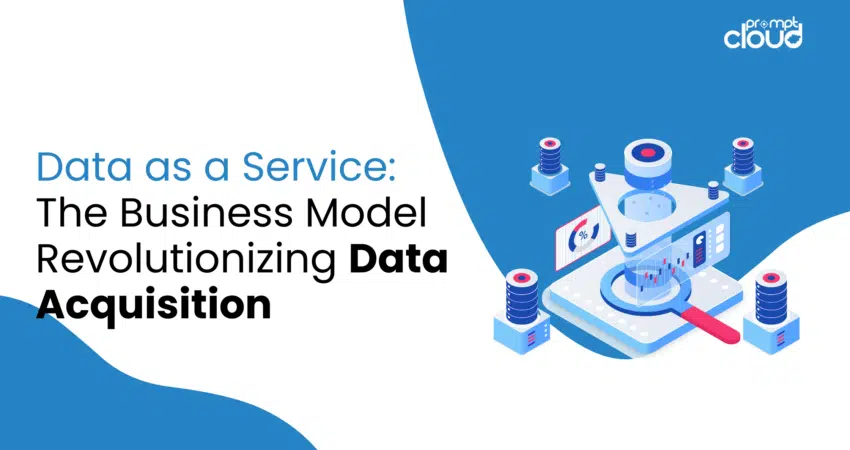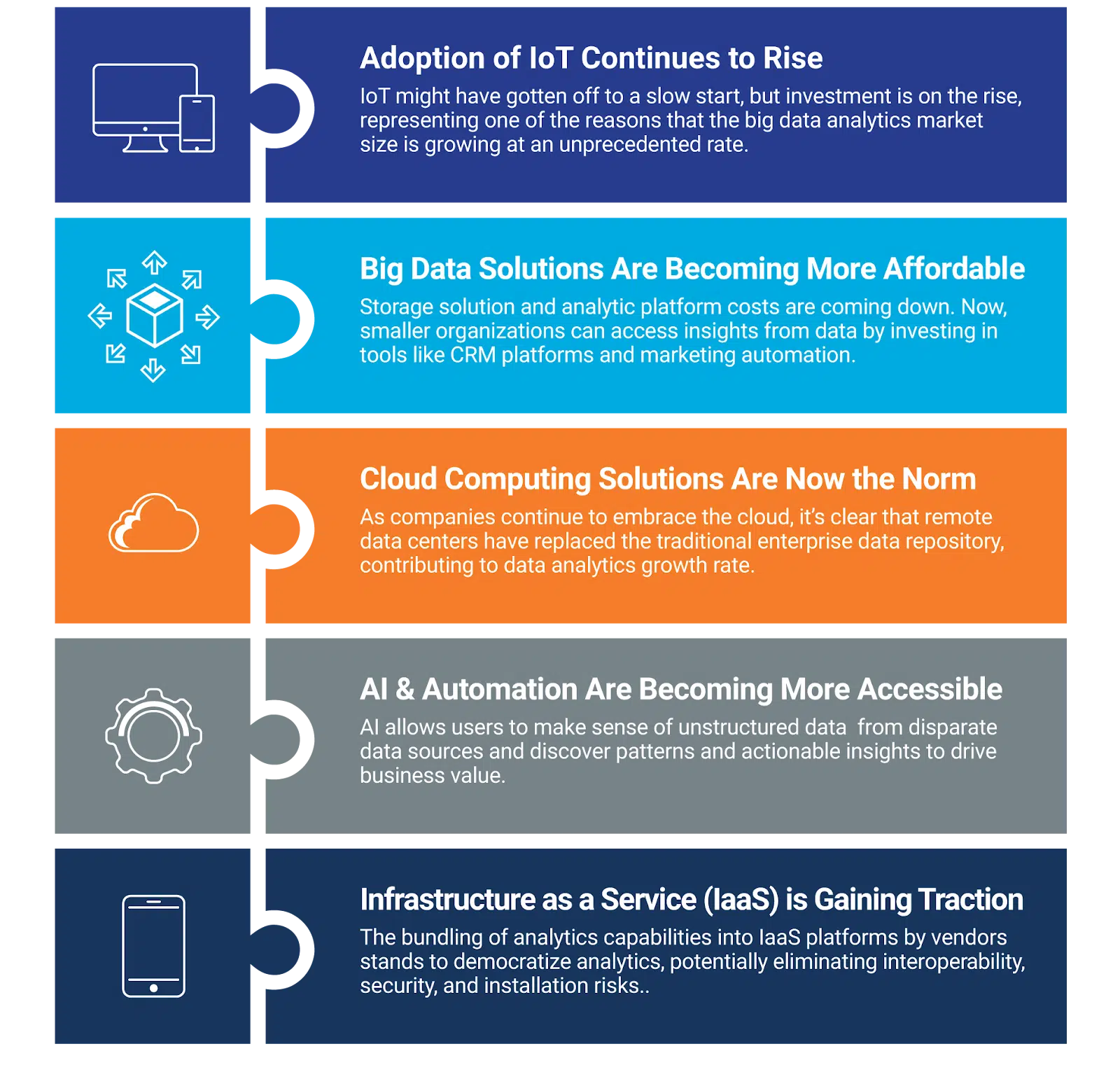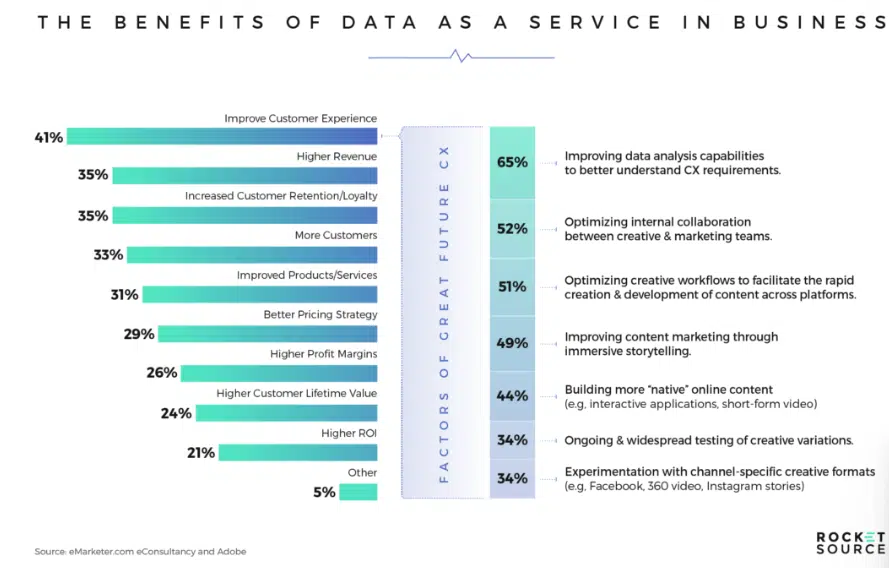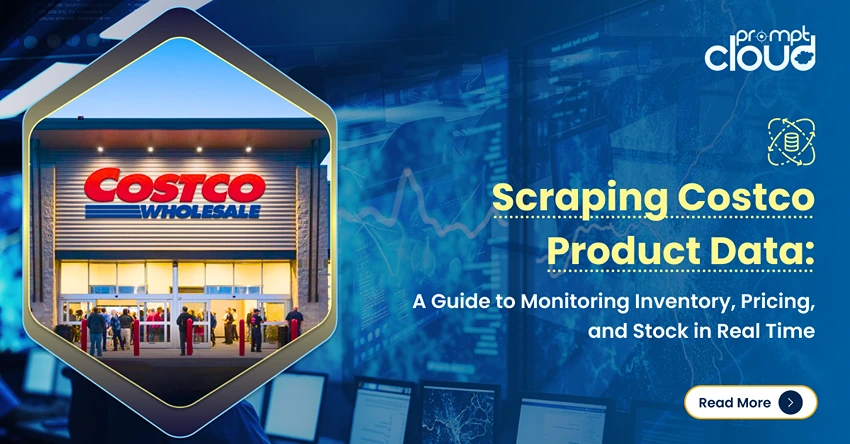
In an era where data is the new currency, Data as a Service (DaaS) emerges as a transformative business model, providing data on demand to companies regardless of their industry or size. Data as a service leverages cloud computing to deliver data seamlessly and efficiently, enabling businesses to focus on deriving insights rather than managing data. This innovative approach not only streamlines operations but also catalyzes the strategic use of data, allowing companies to harness its full potential without the traditional overhead associated with its acquisition and maintenance.
As the volume, velocity, and variety of data continue to explode, traditional data management techniques become less feasible and far less efficient. Data as a service steps into this breach, offering a scalable, flexible solution that can accommodate the flow of data needs in real-time. By transforming data into a readily accessible service, DaaS eliminates many of the complexities associated with data sourcing, cleaning, and analysis, thus accelerating the decision-making process and enabling a more agile business environment.
This shift is profoundly altering the competitive landscape, providing smaller firms with access to the same rich data resources as larger corporations, and leveling the playing field in a way that was unimaginable just a decade ago. In this data-driven age, the ability to quickly adapt and respond to information is paramount, and DaaS equips organizations of all sizes with the tools to do so, fostering innovation, enhancing customer experiences, and driving economic growth.
The Evolution of DaaS
Data as a Service (DaaS) isn’t just a trend; it’s the natural progression of our increasingly digital world. The evolution of DaaS is a fascinating journey that mirrors the broader digital transformation across industries. This section explores the transition from traditional data handling methodologies to the streamlined, cloud-based models that are revolutionizing the way businesses operate today.
From Localized Storage to Cloud Computing
In the early days of computing, data was stored and managed locally. This approach required significant physical and financial resources, limiting access to large organizations. The advent of cloud computing marked a pivotal shift, as it allowed data to be hosted on servers maintained by third parties, vastly reducing the cost and complexity of data storage and access. Cloud computing not only democratized data access but also introduced unprecedented scalability and flexibility in data management.
Rise of Big Data and Analytics

Source: 3pillarglobal
As digital technologies advanced, so did the volume of data. The era of big data brought with it an urgent need for systems that could not only store vast amounts of data but also process and analyze it efficiently. Here, DaaS began to take shape, driven by the necessity for sophisticated analytics tools that could turn raw data into actionable insights. The integration of analytics with cloud services allowed businesses to leverage data in ways that were once thought impossible, fostering data-driven decision-making at all levels.
Integration with AI and Machine Learning
The continuous evolution of DaaS is closely linked with advancements in artificial intelligence (AI) and machine learning (ML). These technologies have propelled DaaS beyond simple data delivery, offering predictive analytics, automated decision-making, and personalized data experiences. The symbiosis between DaaS and AI transforms static data into dynamic tools for innovation, enabling businesses to predict trends, automate processes, and customize services in real-time.
DaaS Today: A Keystone of Digital Transformation
Today, DaaS stands as a keystone in the architecture of digital transformation, essential for any organization looking to thrive in a data-centric economy. It encapsulates the shift from merely owning data to strategically using it, ensuring that data is not just a resource but a core component of operational and strategic decision-making.
As businesses continue to navigate the complexities of the digital age, DaaS provides a clear path forward, simplifying the data acquisition process while enriching the quality of insights obtained. This evolution from traditional data practices to a service-based model highlights the adaptive nature of technology and its role in driving continuous innovation and competitive advantage.
Key Benefits of Data as a Service
Data as a Service (DaaS) offers a multitude of advantages that can transform the way businesses operate, making it a pivotal tool in today’s data-driven environment. Here’s an in-depth look at the primary benefits:

Source: rocketsource
Cost Efficiency
One of the most significant advantages of DaaS is its ability to drastically reduce the need for extensive infrastructure investments. Traditional data management requires substantial capital outlays for servers, storage solutions, and other hardware, not to mention the ongoing expenses related to maintenance and upgrades. DaaS eliminates much of this financial burden by leveraging cloud-based resources that can be paid for on a subscription basis or according to usage. This shift from a capital expenditure (CapEx) model to an operational expenditure (OpEx) model allows companies of all sizes to access cutting-edge technology without prohibitive upfront costs.
Scalability
DaaS provides unmatched scalability, accommodating the ebb and flow of business needs with ease. Whether a company is experiencing a period of rapid growth or needs to cut back, DaaS can adjust accordingly without the typical delays associated with physical infrastructure scaling. This flexibility is crucial for maintaining efficiency and responsiveness in a dynamic market environment, ensuring that businesses can scale their data capabilities up or down instantly as their requirements change.
Accessibility
In today’s globalized economy, the ability to access data anytime, anywhere is crucial. DaaS ensures that high-quality, timely data is accessible to users wherever they are, whether they’re working from the office, from home, or from halfway across the world. This ubiquity not only supports remote work arrangements but also enhances collaboration among teams dispersed across different geographies. Moreover, DaaS ensures that this data is consistently formatted and easy to integrate, further simplifying workflows and decision-making processes.
Data Governance and Security
Data security and compliance are paramount in an age where data breaches are both costly and damaging to a company’s reputation. DaaS providers invest heavily in securing their platforms, implementing robust measures that may be beyond the reach of individual companies, especially small to medium-sized enterprises. This includes physical security, encryption, access controls, and regular security audits. Additionally, DaaS helps enforce consistent data governance practices, ensuring compliance with regulations such as GDPR, HIPAA, and others, thus reducing the regulatory burden on businesses.
Challenges and Considerations
While DaaS presents compelling benefits for businesses seeking to leverage big data, there are several challenges and considerations that must be addressed to ensure its successful implementation:
Data Privacy Concerns
One of the primary challenges with DaaS is managing data privacy. As data is stored and managed by external service providers, there are concerns regarding the security of sensitive information and the potential for data breaches. Ensuring that DaaS providers comply with strict data protection regulations like GDPR in Europe, CCPA in California, and other regional laws is essential. Businesses must scrutinize the privacy policies of their DaaS providers and ensure that they have robust security measures in place to protect customer data.
Continuous Data Validation
Data quality is critical for making informed business decisions. With DaaS, there is a reliance on external sources for data provision, which can sometimes lead to issues with data accuracy, completeness, and timeliness. To mitigate this, continuous data validation is necessary. Businesses need to implement processes to regularly check and confirm the integrity and relevance of the data they receive. This might involve setting up automated checks, using data validation tools, or maintaining an ongoing dialogue with the DaaS provider to address any data quality issues swiftly.
Potential Dependency on Service Providers
Reliance on external DaaS providers can lead to dependency, which poses a risk if the provider experiences downtime, changes their service terms, or discontinues their services. This dependency can impact operational continuity and data accessibility. To manage this risk, businesses should consider diversifying their data sources and maintaining backup systems. Additionally, it’s crucial to have clear service level agreements (SLA) that outline the provider’s responsibilities and the expected performance standards.
Integration with Existing Systems
Integrating DaaS into existing IT infrastructure can be a technical challenge. Ensuring compatibility between different data formats and systems is essential for seamless functionality. Businesses may need to invest in middleware or custom integrations to connect the DaaS solutions with their existing databases and applications effectively.
Ethical and Regulatory Compliance
As businesses increasingly rely on DaaS for decision-making, they must consider the ethical implications of how data is used, particularly in sensitive sectors like healthcare or finance. Ensuring that data usage complies with ethical standards and regulatory requirements is critical to maintaining trust and legality.
Conclusion: Why DaaS is Indispensable for Modern Businesses
In today’s rapidly evolving digital landscape, data is more than just a resource—it’s a pivotal asset that drives innovation, operational efficiency, and informed decision-making. Data as a Service (DaaS) has emerged as an indispensable tool for modern businesses, enabling them to leverage the vast potentials of big data without the traditional complexities associated with its acquisition and management.
DaaS simplifies the process of data handling, providing businesses with timely, high-quality data that is ready for analysis. This accessibility allows companies of all sizes to react quickly to market changes, uncover new opportunities, and tailor services to meet the exact needs of their customers. By removing the burdens of data management, businesses can focus more on core competencies and innovation, driving growth and maintaining competitiveness in a data-driven economy.
Moreover, DaaS fosters a more democratic approach to data utilization, leveling the playing field between large corporations and smaller enterprises. The scalability and cost-efficiency of DaaS ensure that even startups and mid-sized companies can access the same quality of data as their larger counterparts, promoting fair competition and stimulating economic diversity.Are you ready to transform your business with the power of data? Explore how PromptCloud’s DaaS solutions can revolutionize your data acquisition strategies, ensuring you not only keep pace but stay ahead in the competitive market. With our expertise and robust data offerings, you can unlock new dimensions of efficiency and innovation. Contact us today at sales@promptcloud.com to learn more about how we can help you harness the full potential of data in driving your business success.



















